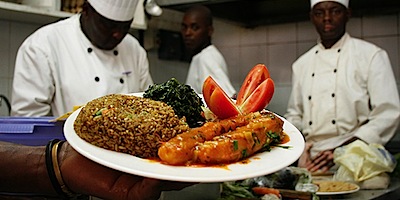Proponents of urban and peri-urban agriculture, ourselves included, have a poster-child: Cuba. In the wake of the collapse of the Soviet Union as a big market for sugar exports, the Cubans became more self reliant and replaced the food they could no longer afford to import with bounteous harvests from small urban plots.
Alas, all is not quite so rosy in the organopónico. A new book, noted at HungryCity, points out that these plots supply just 5% of Cuba’s food. Furthermore, 75% of Cuban farmers use agrochemicals, and 83% would apply more if they could. Despite masses of evidence that organic land in Cuba really was more productive than conventional farms, the country is reverting to a conventional model.
I came to that post via this one at Spillway, where Will Wiles dissects the issue:
[T]he proponents of urban farming often muddle up doing it because we must (that is, we face shortages if we do not) and doing it because we should (self-reliance being a virtue, food security being desirable and so on) — necessity and desirability. And it’s the questions of necessity that tend to be the most powerful arguments: no one wants to face shortages. But if people see urban farming as only a necessity, it will only ever be seen as an emergency response to a crisis, to be rolled back when (if) more secure times return. This appears to be the condition Cuba is in. But that simply sets society back on the road to consumer-dependence of food produced invisibly elsewhere.
Moving to a more diverse and stable system of food production — including some urban farming — has to accent that is is a desirable option in good times and bad.
That makes a lot of sense to me; urban ag and greater diversity can deliver both resilience and better nutrition, health, incomes etc etc. I wish I had the skills and time to do a decent analysis of an idea that has long intrigued me. At the moment global food supply is dominated by cheap refined carbohydrates and appalling meat. People are not fools; they buy the cheapest calories they can. And that does not include good nutrition. So, why not integrate intensive (but preferably less harmful) production of storable, shippable commodities with local production of the extras that are so vital for a diverse diet that is tasty and nutritious?
There’s more at Spillway about Art and Food, but time is short today and I can’t summon the energy to unpack it or to respond. You might fare better.
